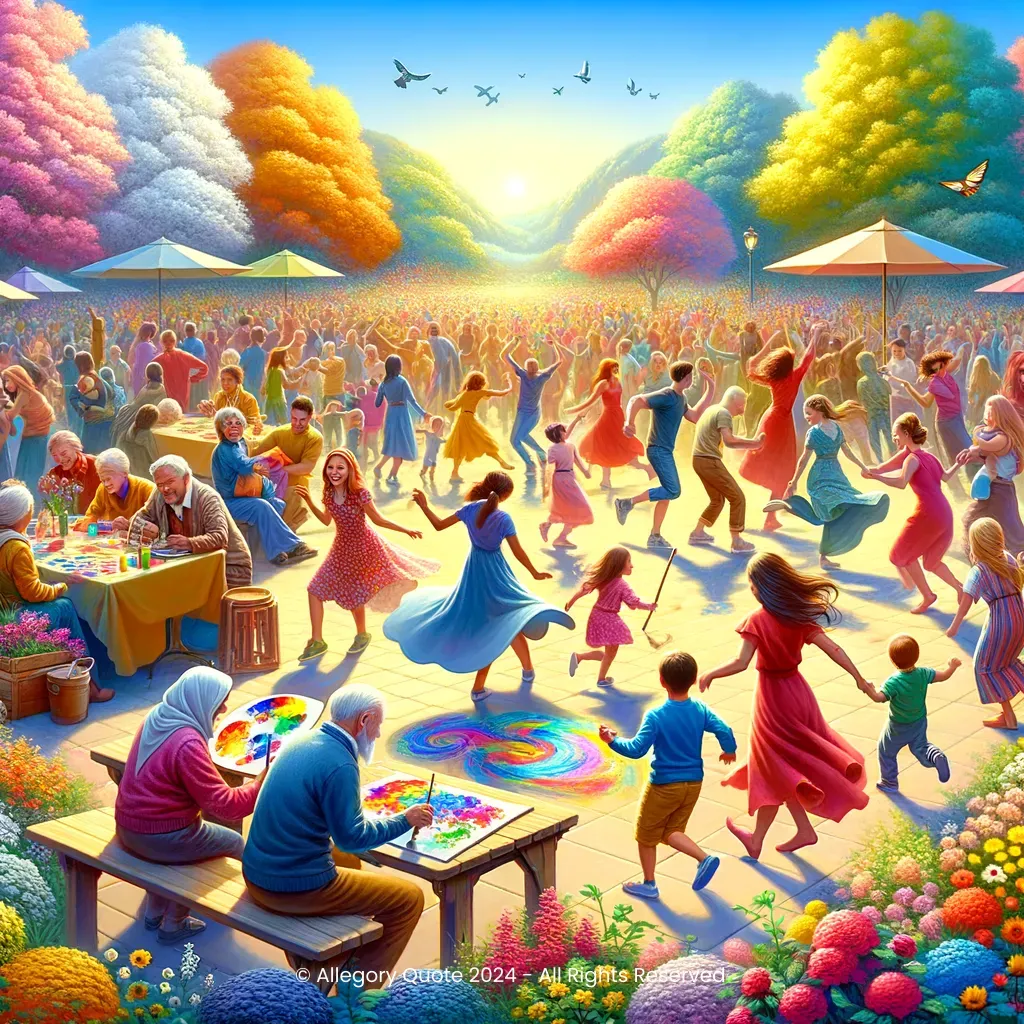You’re never too old to be young

0
0
0
0
- Meaning
- The phrase emphasizes a philosophical standpoint that challenges societal perceptions of aging. It invokes a sense of empowerment, encouraging individuals to pursue interests, embrace playfulness, and maintain a youthful outlook on life. This notion aligns with psychological theories on well-being and growth, advocating that attitude and mindset can greatly influence one's experience of life at any age.
- Allegory
- The allegorical image captures the essence of the phrase by showcasing individuals of diverse ages joyfully participating in activities showcasing creativity and playfulness. The blooming flowers symbolize growth and renewal, while the presence of young animals represents life’s endless cycles. Together, these elements highlight the idea that youthfulness is a state of mind, encouraging engagement and connection regardless of age.
- Applicability
- This phrase serves as motivation to engage with life actively, participate in new experiences, and adopt a playful attitude, regardless of age. Individuals can take this to heart by redefining goals, pursuing hobbies, or forging new social connections, thereby embedding youthfulness in their lifestyle.
- Impact
- This sentiment has significantly impacted cultural narratives surrounding aging, contributing to movements that promote active aging and the idea of aging well. It is often quoted in media portraying characters or lives that defy typical aging stereotypes, contributing to discussions on age and vitality.
- Historical Context
- While the exact origin of this phrase is unclear, it can be conjectured that it emerged in the late 20th century amid cultural shifts emphasizing self-fulfillment and personal growth across all age groups. This period marked significant social change regarding views on aging.
- Criticisms
- Some criticisms include the oversimplification of youthfulness, as it may overshadow the legitimate challenges of aging that require recognition and support. Critics argue that this phrase might promote unrealistic expectations for older adults or dismiss struggles related to health and socio-economic factors influencing quality of life.
- Variations
- Variations exist across cultures, such as the Chinese saying, 'The older, the wiser.' This shows that while some cultures associate aging with wisdom, others celebrate the notion of perpetual youthfulness, reflecting different values placed on age and experience.
-

The sky’s awake, so I’m awake!
-

It’s called love. It’s why we do it.
-

The very things that hold you down are going to lift you up.
-

Venture outside your comfort zone. The rewards are worth it.
-

The only limit is your soul.
-

I’m trash!
-

The problem is not the problem. The problem is your attitude about the problem.
-

You’re gonna see it’s our destiny.
-

We scare because we care.
-

There’s magic in the air tonight, and anything can happen.
-

There are no accidents.
-

You don’t have to be perfect to be amazing.
No Comments